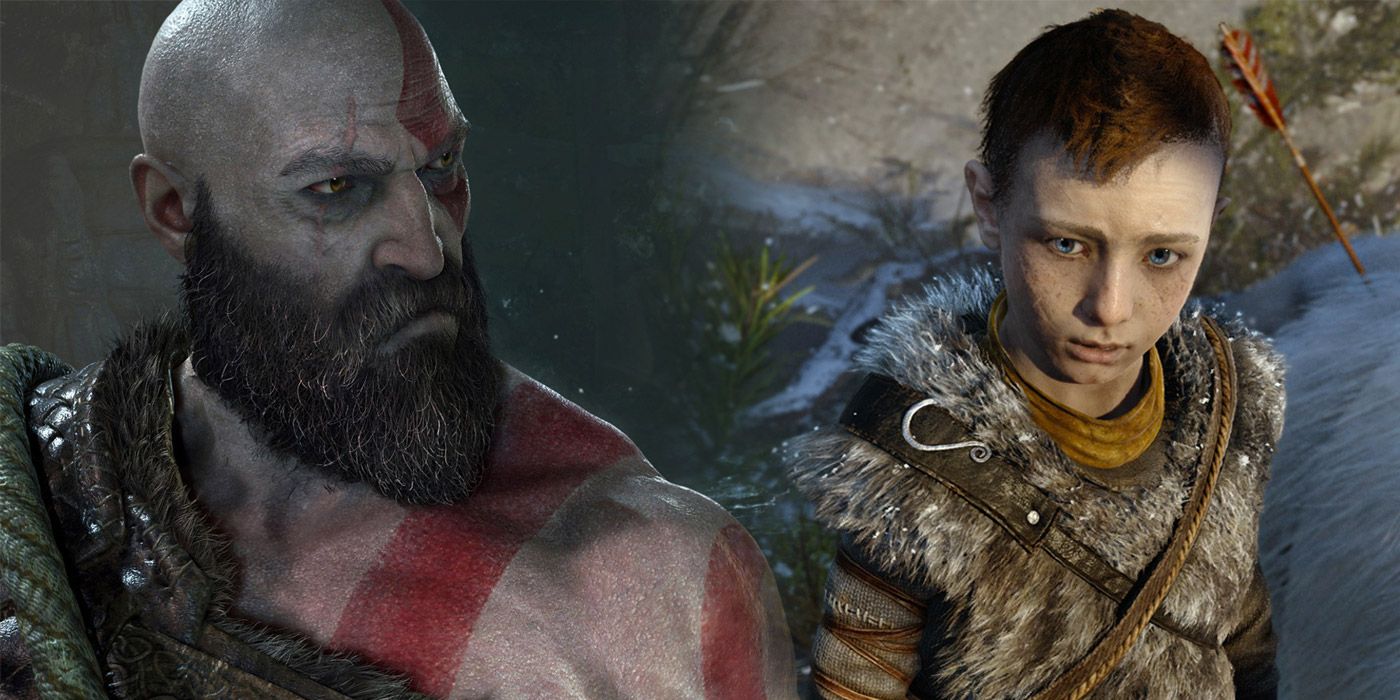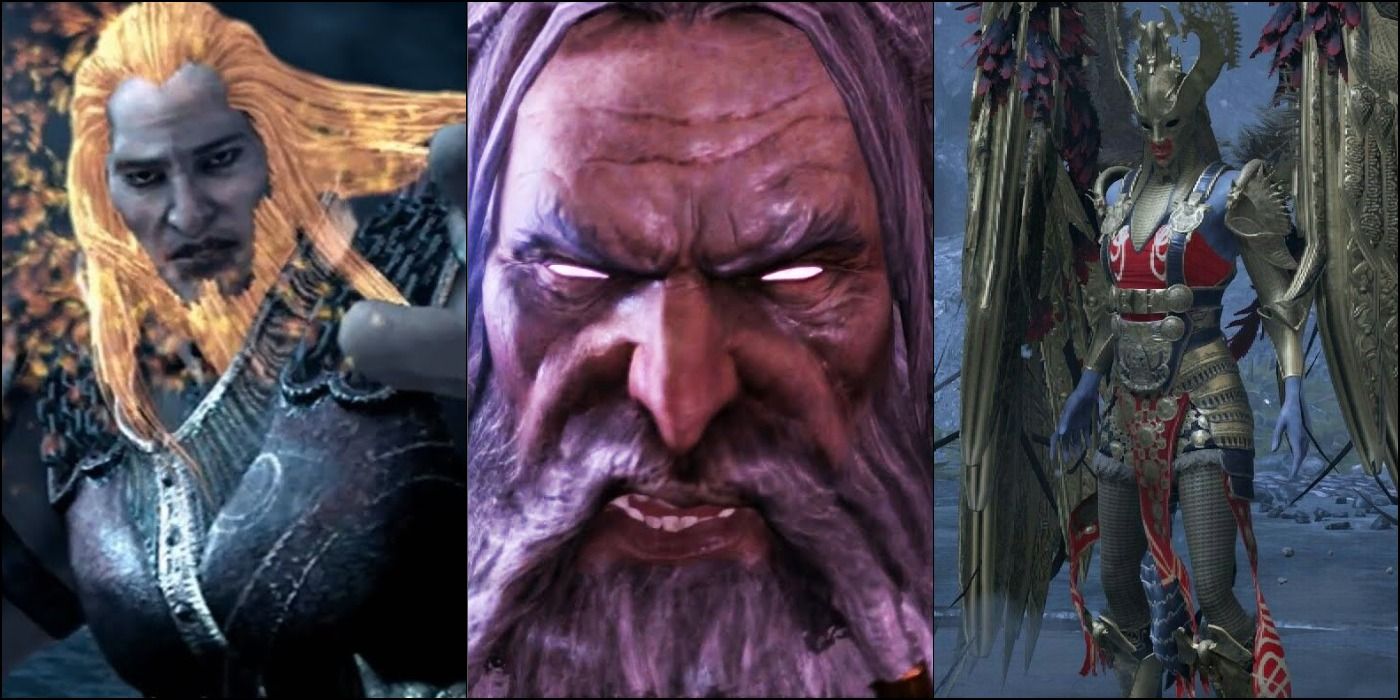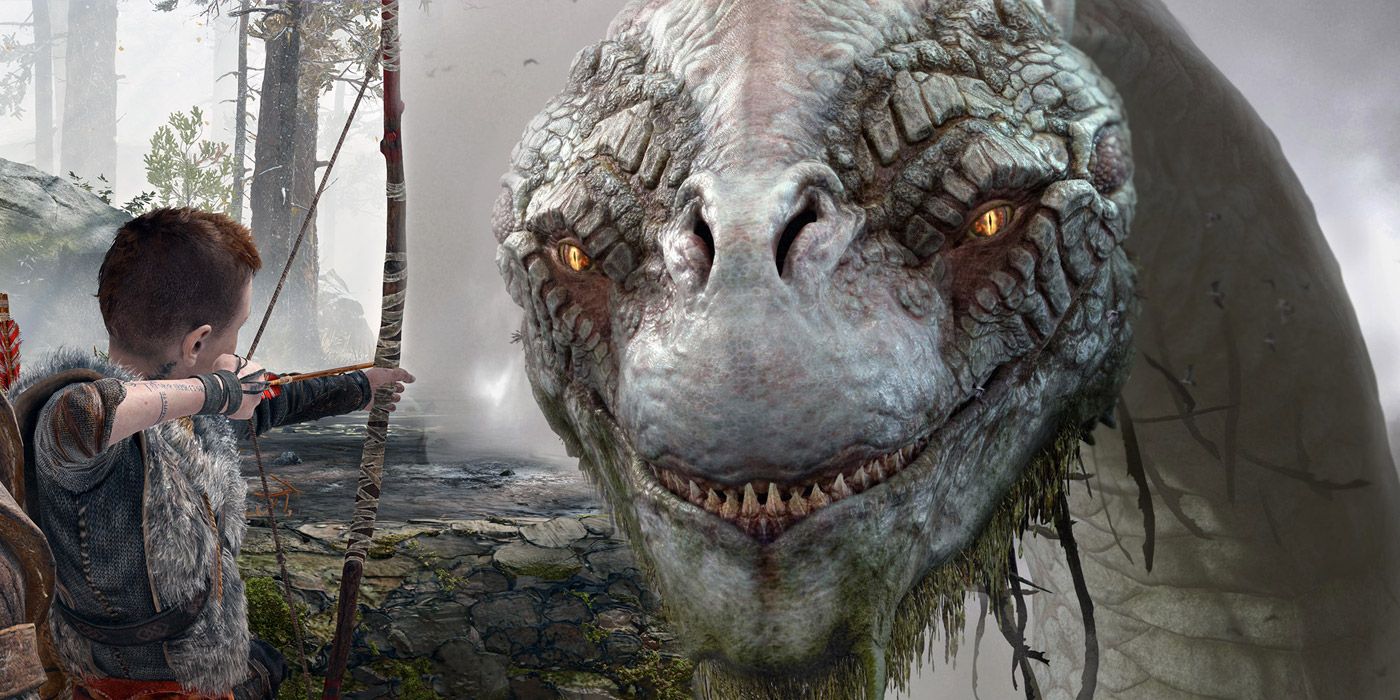A sequel to the last God of War is on the way. The tagline “Ragnarok is coming” suggests that the game will see the events of the Norse apocalypse unfold over the course of its story, which has huge implications for its two main characters.
In 2018’s God of War, Kratos was joined by Atreus, his son. Towards the end of the game, it’s revealed that Atreus is in fact Loki, the Norse god of deception. Ironically, it is not by the deception of his own that Atreus’ true identity is kept hidden – it is only revealed on the Jotunheim mural that Kratos’ wife originally wanted to call the boy Loki before Kratos named him after a Spartan warrior. However it plays out, the next game likely sees Kratos and Atreus’ relationship go through some huge changes.
Cycles of Violence
A few events in the Ragnarok prophecy have already taken place in the God of War timeline. Baldur has been killed, the event which first begins the “Twilight of the gods.” Fimbulwinter, the three-year winter that precedes Ragnarok beginning in earnest, has already begun. God of War’s secret ending implies that at the end of Fimbulwinter, Thor will arrive to confront Kratos and Atreus about the deaths of his sons, Magni and Modi.
The deaths of Magni and Modi are a key point in Atreus and Kratos’ relationship. Magni and Modi are sent to find and capture the pair. Kratos kills Magni in combat, and Modi flees. Later, Modi attempts to attack the father-son duo again, but is overpowered. When he insults Atreus’ mother, the boy stabs him in the neck and pushes him into a ravine, presumably killing him.
Kratos is disturbed by the moment, acting too late to stop his son’s newfound impulsiveness. It’s unclear what sort of Loki Atreus will turn out to be – there are many different interpretations of the god from Assassin’s Creed to the MCU. However, Atreus and Kratos’ dynamic may be interesting if many of Loki’s most negative traits are reflections of Kratos, as most of Kratos’ life has been propelled by impulsive acts of violence.
Indeed, the original God of War’s events are set in motion when Kratos murders a village of people, and Ares tricks him into killing his own wife and child. If Thor shows up at the end of Fimbulwinter and Kratos and Atreus have to defeat or kill him, the next game will have already begun with an event that could put a strain on Kratos and Atreus’ relationship. Since they each killed one of Thor’s sons, however, their similarities are destructive and could concern Kratos the most.
Because of this, it is likely that the interpersonal conflict of the next God of War will focus on whether or not Kratos can stop his son from falling victim to his father’s fate. Kratos has been stuck in a cycle of violence his entire life, and Ragnarok is just that: a cyclical and violent regurgitation of the Norse cosmos.
Ragnarok may be a cycle of destruction, but that doesn’t mean the circle can’t be broken. In one sense, the prophecy has already been broken. In Norse mythology, Magni and Modi take up Thor’s hammer after their father and the World Serpent kill each other during Ragnarok. With both sons dead, the cycle has already been disrupted.
Breaking the Cycle
The Jotunheim mural that shows some of the events of Ragnarok also shows a potential disruption to the cycle. The final mural appears to show Atreus cradling the body of a tattoo-less Kratos as an unknown substance connects them at the mouth. Atreus is next to the runes for “svik,” meaning betrayal or deceit. The other figure is next to the runes meaning father.
This does not mean that Atreus kills Kratos, just as Kratos killed his father Zeus and Zeus killed his father Cronos. If “svik” is translated as deceit it could be a sort of title. Just as Kratos is the father, Loki is the god of deceit. However, this could also imply that the figure next to the word for father is Odin the All-Father, explaining the lack of tattoos.
Kratos originally wore his tattoos because of a birthmarked brother he had who was killed out of fear that he was the prophesized “Marked Warrior” who would destroy Olympus. If the figure lying next to Atreus is in fact Kratos, then the loss of his tattoos could be the ultimate symbol that the cycle of violence in God of War that has permeated Kratos' entire life has finally come to a close, with the mark and burden left by that very first act of violence finally lifted.
Kratos may not let himself succumb to the same fear that his father Zeus did, who was driven mad by the paranoid idea that his son would kill him. However, it is likely that after seeing the Jotunheim mural, Kratos will believe he is fated to die at the hands of his son, even if he isn’t. Of course, Kratos has messed with the threads of fate plenty of times, and literally in the original God of War 2.
Another big point of contention could be whether or not Kratos decides to tell Atreus what he saw on the final panel of the Jotunheim mural or not. Loki also has some big moments in Ragnarok, from leading Fenrir and the World Serpent to the final battle of the gods to killing – and being killed by – the god Heimdall. Much of Kratos and Atreus’ relationship could depend on which events from Ragnarok the developers decide to keep in the story. The mythological Loki was already married when Ragnarok began, and Fenrir and the World Serpent were his children, so there are likely to be changes unless God of War takes the time travel route again.
Whatever the events of Ragnarok, the relationship between God of War’s Kratos and his son is likely to be the focusing point of the next game. It’s Kratos’ only chance to break the cycle of patricide that has haunted his divine lineage, and to stop Atreus from becoming a truly villainous Loki, or worse, a reflection of Kratos himself.
The God of War sequel is planned to release in 2021 for PS5.



